Sex-based differences in antiretroviral therapy initiation, switching and treatment interruptions: global overview from the International Epidemiologic Databases to Evaluate AIDS (IeDEA)
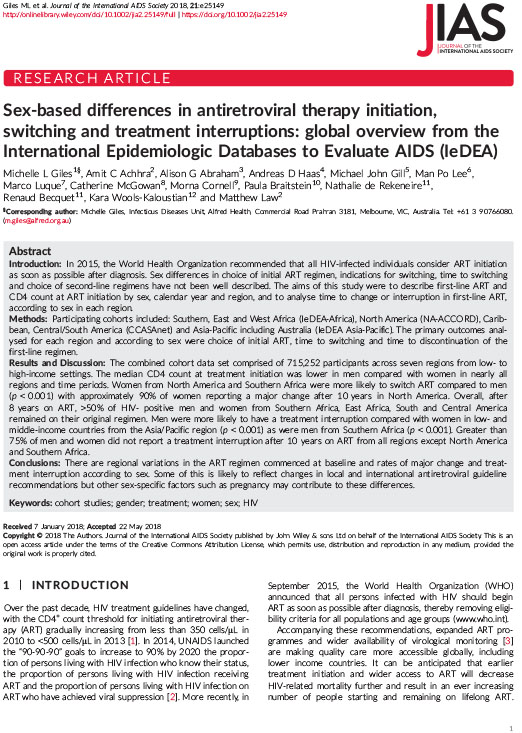
Introduction In 2015, the World Health Organization recommended that all HIV-infected individuals consider ART initiation as soon as possible after diagnosis. Sex differences in choice of initial ART regimen, indications for switching, time to switching and choice of second-line regimens have not been well described. The aims of this study were to describe first-line ART […]
The first decade of antiretroviral therapy in Africa

The past decade has seen remarkable progress in increasing access to antiretroviral therapy in resource- limited settings. Early concerns about the cost and complexity of treatment were overcome thanks to the efforts of a global coalition of health providers, activists, academics, and people living with HIV/AIDS, who argued that every effort must be made to […]
No man left behind
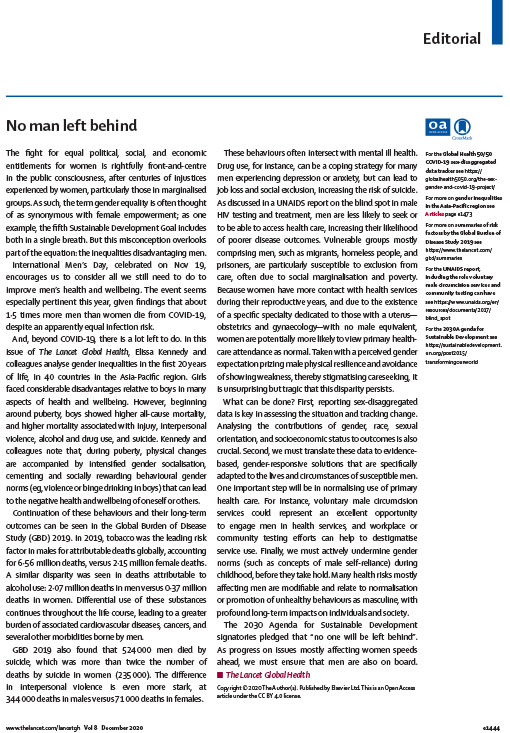
The fight for equal political, social, and economic entitlements for women is rightfully front-and-centre in the public consciousness, after centuries of injustices experienced by women, particularly those in marginalised groups. As such, the term gender equality is often thought of as synonymous with female empowerment; as one example, the fifth Sustainable Development Goal includes both […]
Men’s Perceptions of Women’s Rights and Changing Gender Relations in South Africa: Lessons for Working With Men and Boys in HIV and Antiviolence Programs

Emerging out of increased attention to gender equality within violence and HIV prevention efforts in South African society has been an intensified focus on masculinities. Garnering a deeper understanding of how men respond to shifting gender relations and rights on the ground is of urgent importance, particularly since social constructions of gender are implicated in […]
Male sex and the risk of mortality among individuals enrolled in antiretroviral therapy programs in Africa: a systematic review and meta-analysis
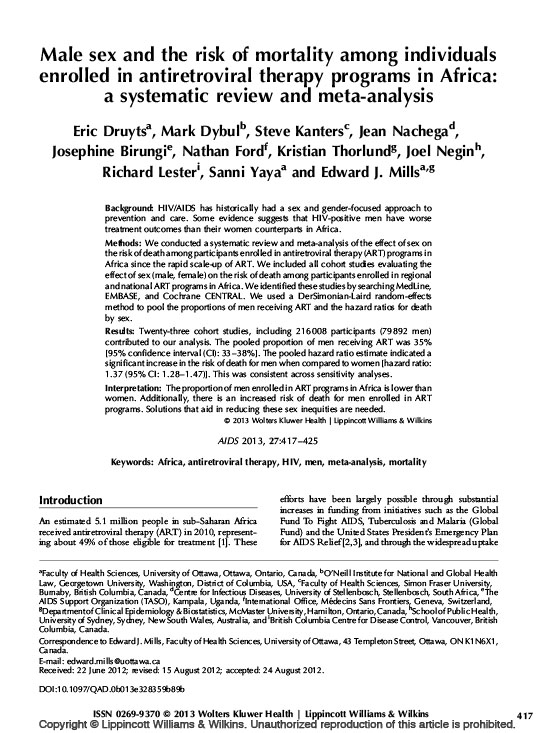
Background: HIV/AIDS has historically had a sex and gender-focused approach to prevention and care. Some evidence suggests that HIV-positive men have worse treatment outcomes than their women counterparts in Africa. Methods: We conducted a systematic review and meta-analysis of the effect of sex on the risk of death among participants enrolled in antiretroviral therapy (ART) […]
Gendered health institutions: examining the organization of health services and men’s use of HIV testing in Malawi
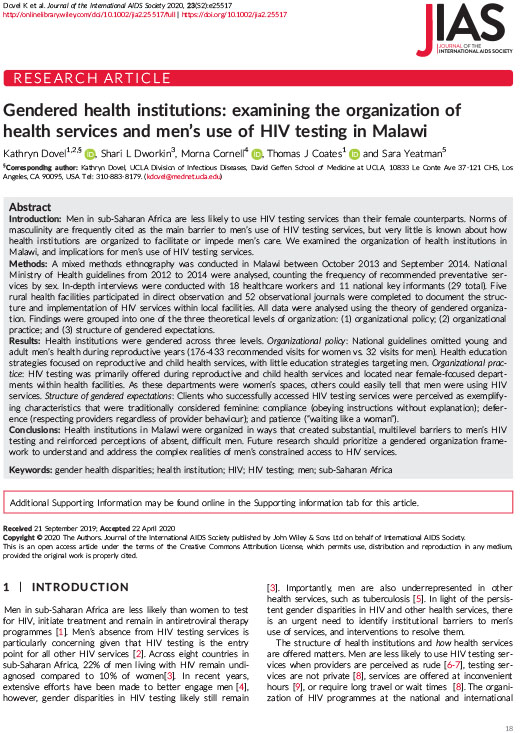
Introduction Men in sub-Saharan Africa are less likely to use HIV testing services than their female counterparts. Norms of masculinity are frequently cited as the main barrier to men’s use of HIV testing services, but very little is known about how health institutions are organized to facilitate or impede men’s care. We examined the organization […]
Frequency of visits to health facilities and HIV services offered to men, Malawi
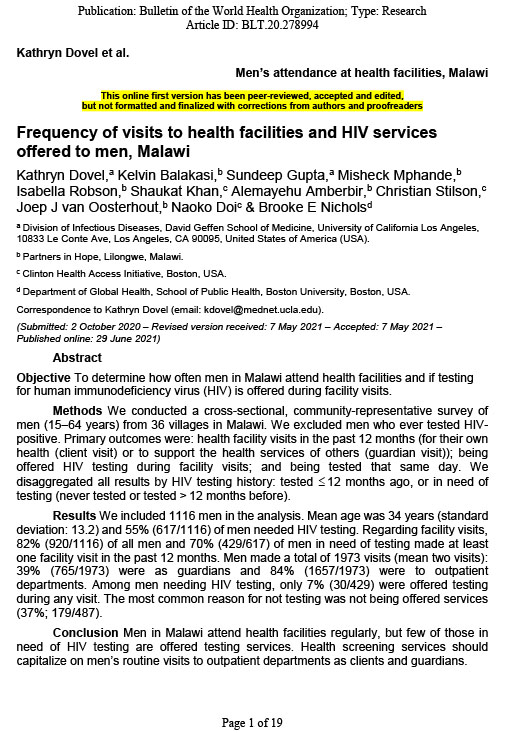
Objective To determine how often men in Malawi attend health facilities and if testing for human immunodeficiency virus (HIV) is offered during facility visits. Methods We conducted a cross-sectional, community-representative survey of men (15–64 years) from 36 villages in Malawi. We excluded men who ever tested HIV-positive. Primary outcomes were: health facility visits in the […]
Leaving No Man Behind: Improving HIV Services for Men
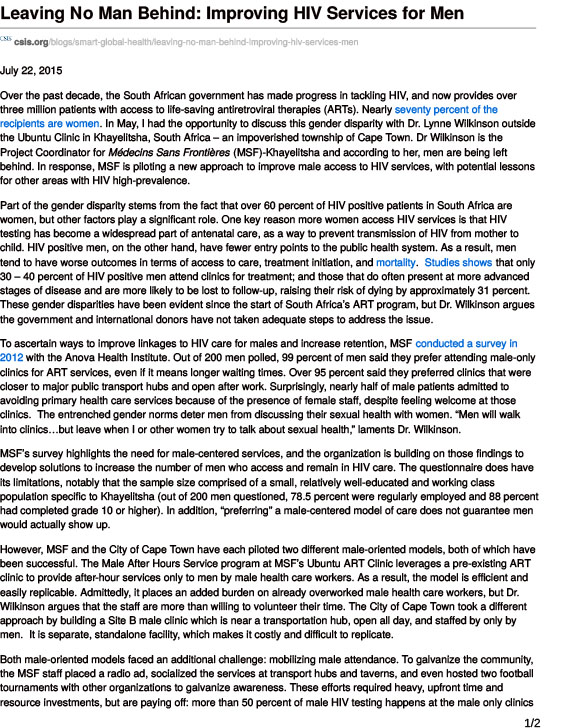
Over the past decade, the South African government has made progress in tackling HIV, and now provides over three million patients with access to life-saving antiretroviral therapies (ARTs). Nearly seventy percent of the recipients are women. In May, I had the opportunity to discuss this gender disparity with Dr. Lynne Wilkinson outside the Ubuntu Clinic […]
The impact of gender and income on survival and retention in a South African antiretroviral therapy programme
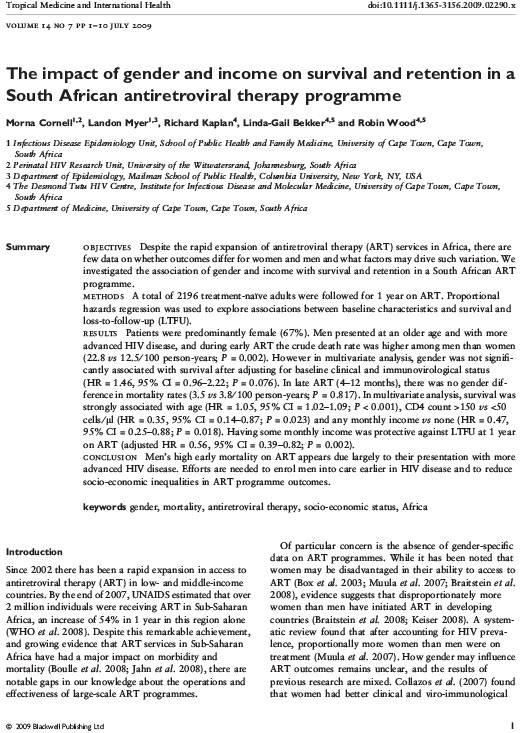
Objectives Despite the rapid expansion of antiretroviral therapy (ART) services in Africa, there are few data on whether outcomes differ for women and men and what factors may drive such variation. We investigated the association of gender and income with survival and retention in a South African ART programme. Methods A total of 2196 treatment-naïve adults were […]
Public health blindness towards men in HIV programmes in Africa
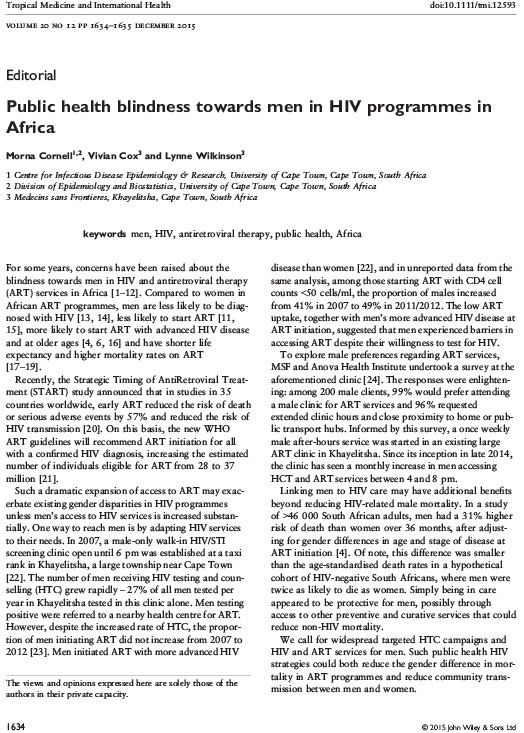
For some years, concerns have been raised about the blindness towards men in HIV and antiretroviral therapy (ART) services in Africa. Compared to women in African ART programmes, men are less likely to be diagnosed with HIV, less likely to start ART, more likely to start ART with advanced HIV disease and at older ages […]


